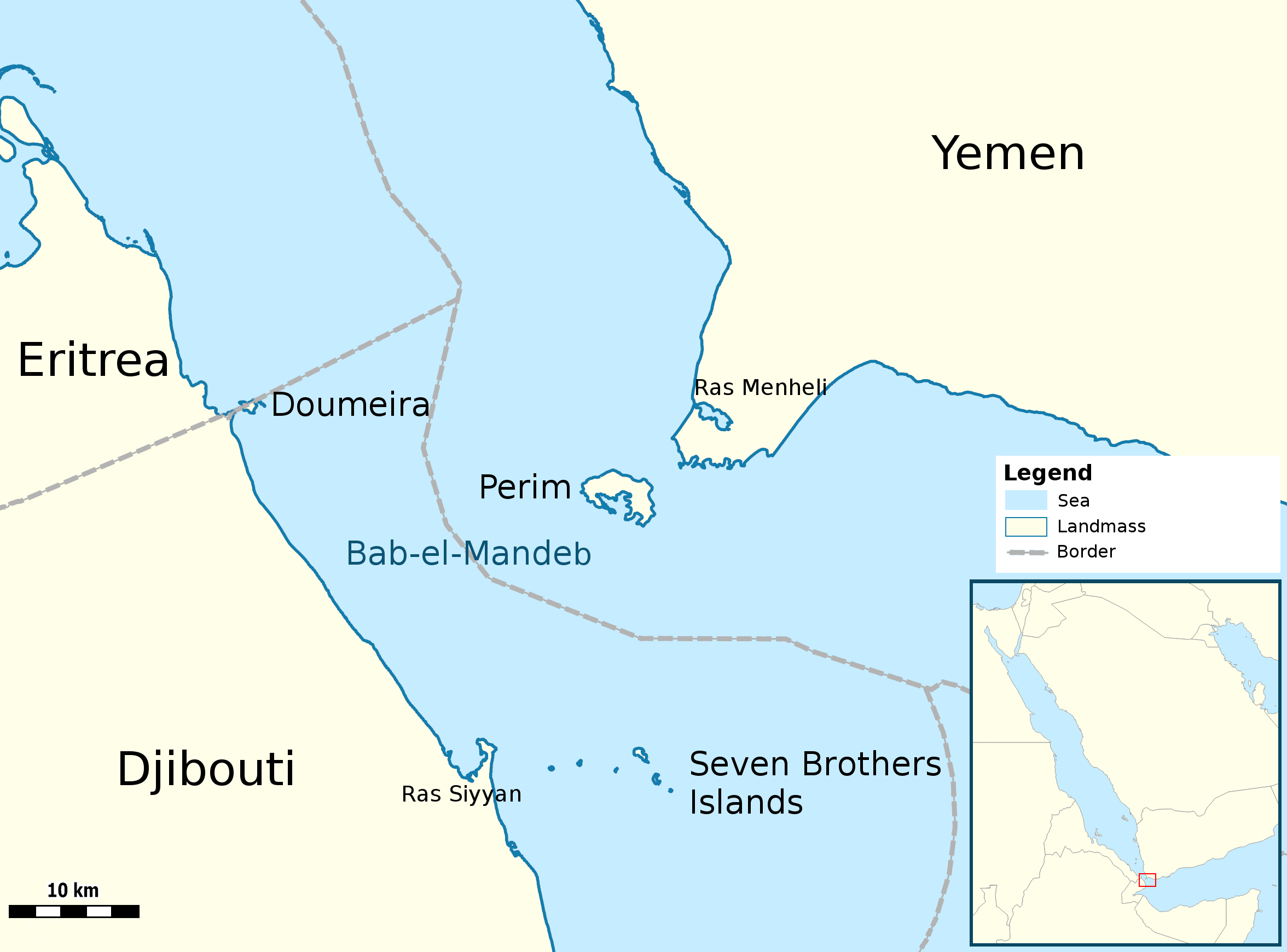“Bab-el-Mandeb” means “Gateway (Bab) of anguish”, or “Gateway of tears”; the strait derives its name from the dangers attending its navigation, or, according to an Arab legend, from the numbers who were drowned by the earthquake which separated Asia and Africa. Bab al-Mandab’s significance drastically increased upon the opening of the Suez Canal in 1869, which led to growth in the volume of international maritime trade. Its significance rose again following the discovery of oil in the Arabian Peninsula and the rise of trade from East Asia. Currently, an average of 60 ships pass through this strait each day. The strait is a classic example of a “chokepoint,” or a geostrategic point crucial for the continued flow of ships.
This strategically important strait links the Red Sea and the Suez Canal with the Gulf of Aden and the Arabian Sea (see Map 29). It is about 14.5 miles wide at its narrowest part of the passage. When it signed the Law of the Sea Convention, the Yemen Arab Republic declared that warships and warplanes must obtain the prior agreement of the Yemen Arab Republic before passing through or over its “territorial waters,” including international straits. The United States Government protested as follows:

. . . the Government of the Yemen Arab Republic may not legally condition the exercise of the right of transit passage through or over an international strait, such as Bab-el-Mandeb, upon obtaining prior permission. Transit passage is a right that may be exercised by ships of all nations, regardless of type or means of propulsion, as well as by aircraft, both state and civil. While warplanes and other state aircraft normally require prior authorization before overflying another State’s territory, authorization is not required for the exercise of the right of straits transit passage under customary law as reflected in article 32 of the Convention.
For the above reasons, the United States cannot accept the claim of authority by the Government of the Yemen Arab Republic to condition the exercise of the right of innocent passage by warships or nuclear‑powered ships or to condition the exercise of the right of transit passage by any ships or warplanes upon prior authorization. Accordingly, the United States reserves its rights and those of its nationals in this regard.

